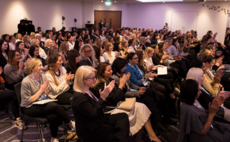And three things they don't, writes Holly Brockwell
DON'T: apply until you've updated your LinkedIn
Yes, LinkedIn, the social network no one likes but everyone uses. It really is useful for finding work, and if you're actively applying to jobs, your LinkedIn should be up-to-the-minute relevant.
Admittedly, this might tip off your current boss that you're looking, but sometimes that's a good thing - they might work harder to keep you, chat to you about what's going wrong, or even offer you that payrise you've been chasing for the last two years.
And if not, it'll help you land a job you do want. Lyndal Larkin says that when people apply to NEXT, she wants to see a LinkedIn profile that matches the CV they've submitted:
"While your resume may - and should - provide more thorough details, including metrics, successes and responsibilities, your LinkedIn profile should be an abbreviated summary of your resume with dates, companies and basic details fully matching."
So request that password reminder and start cleaning out the cobwebs on your profile.
DO: be prepared to talk about everything on your CV at interview
Your CV and covering letter have exactly one objective: to get you an interview. But there shouldn't be anything in there that you aren't 100% prepped and ready to talk about if the subject comes up.
As one developer puts it, "DO NOT put something on your resume that you are not prepared to talk about for a few minutes. I'm surprised how many people put TDD [test-driven development] but can't actually talk about it." Then, when the topic comes up at interview, the candidate responds with a "verbal shuffle of feet" and "weird ramblings" - not the impression you want to give.
While the hiring manager likely understands that you won't get to try everything at your current job, you should still "be able to explain basic concepts even if you admit you haven't done it at work."
Going through your CV and rehearsing what you might say about each point if asked is a great way to prepare for the interview (and you should prepare - don't just turn up and assume your brilliance will sell itself). A data scientist adds that by interview day, you should "know what the role requires" and "be prepared to demonstrate how you will solve their need."
Finally, don't go down the self-deprecation route at the interview. Front-end dev Rhiana Heath says she doesn't want to hear "anything downplaying your achievements or abilities. Like 'I think I'm good at this but I might not be I don't know'. You are good at it! Sell yourself!"
Amen.
DON'T: take general advice too seriously
As with anything that involves human beings, applying for a job is a very subjective task and different hiring managers will have different preferences.
For instance, when we asked women in tech for their recommendations for this article, one wanted to see "bullet points or some kind of formatting, not paragraphs and paragraphs," while another said she's "not very fussed about formatting or style."
Similarly, while one wanted to see a hobbies section because "I like people's CVs to show they are human, and more than just their job and education," another said "across the board, I dislike seeing hobbies or personal floof on resumes unless it's really remarkable."
There was one thing everyone was united on, though: typos. So proofread like your career depends on it, because it kind of does.
Computing will be holding the Women in Tech Festival on 17th September. It will include a workshop 'Presenting a Professional You', with guidance on contructing your CV, honing your LinkedIn page, and submitting high quality job applications.






















